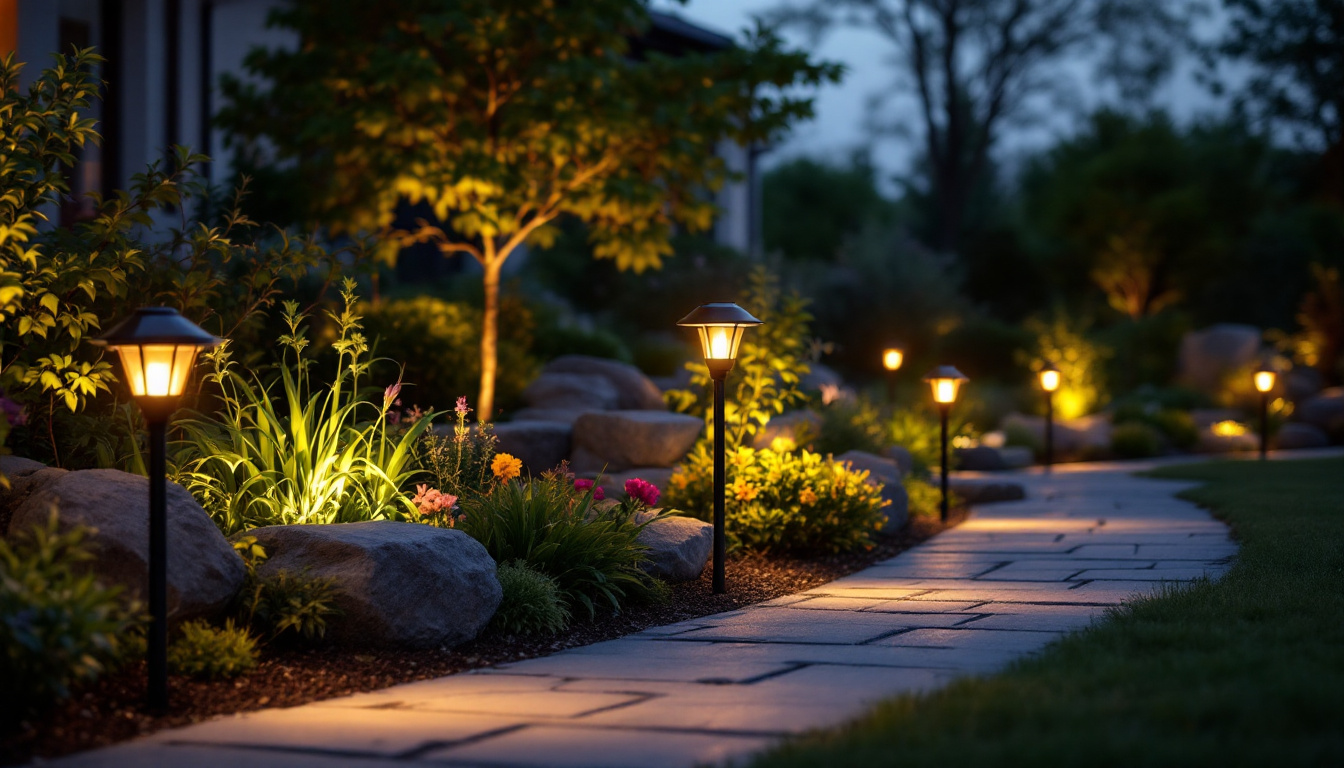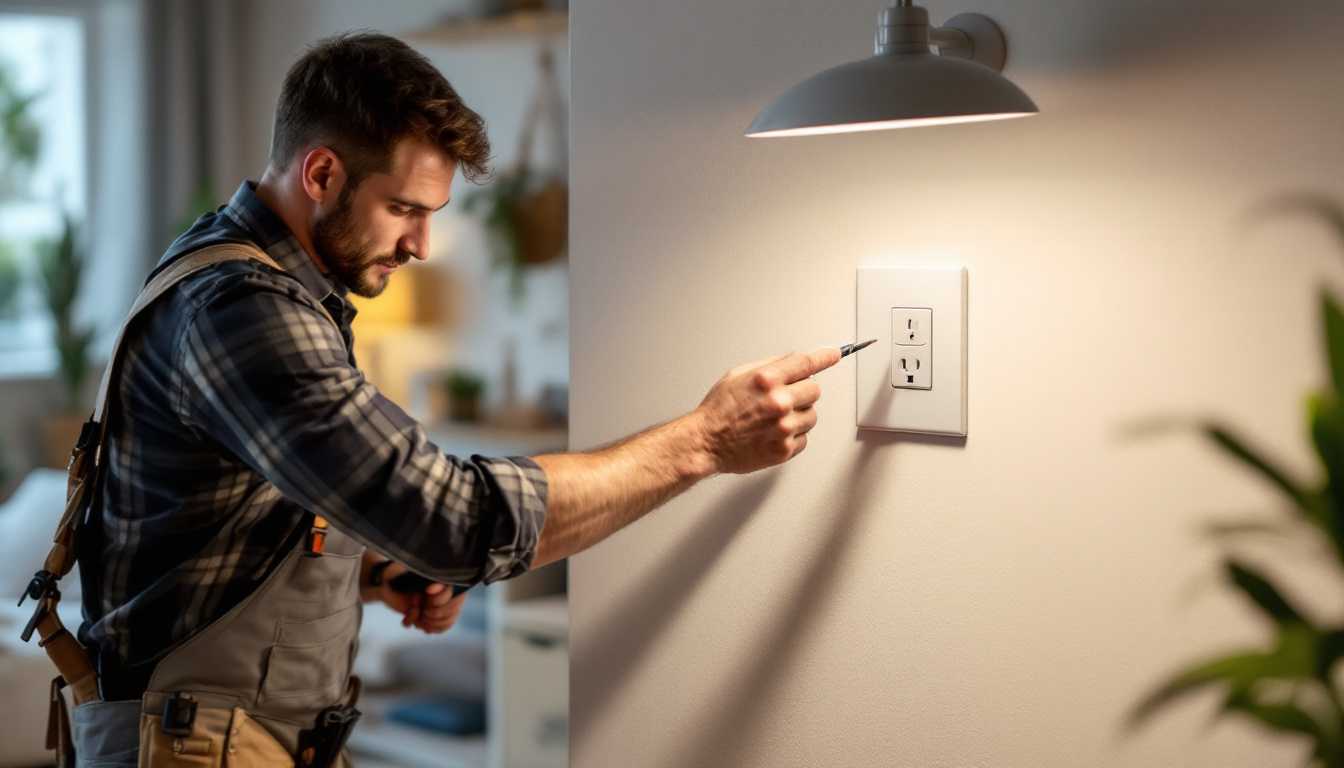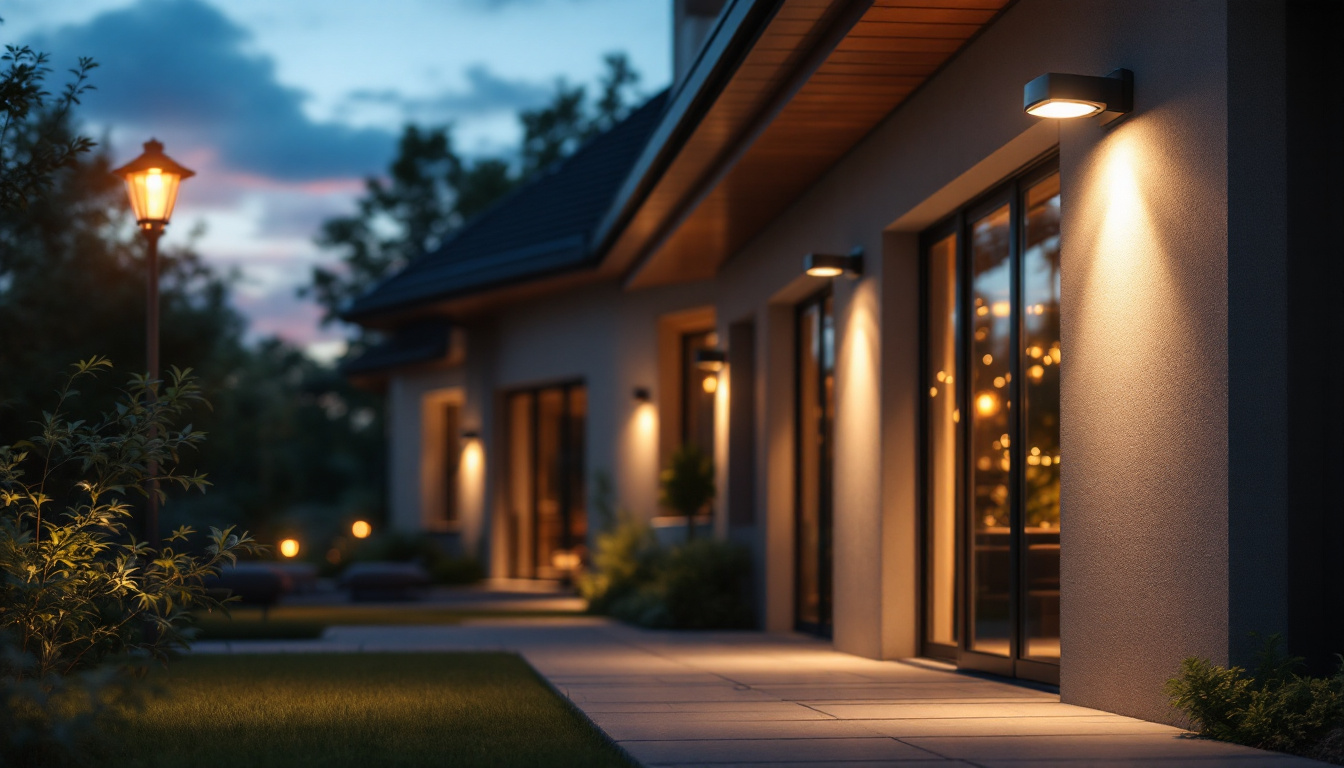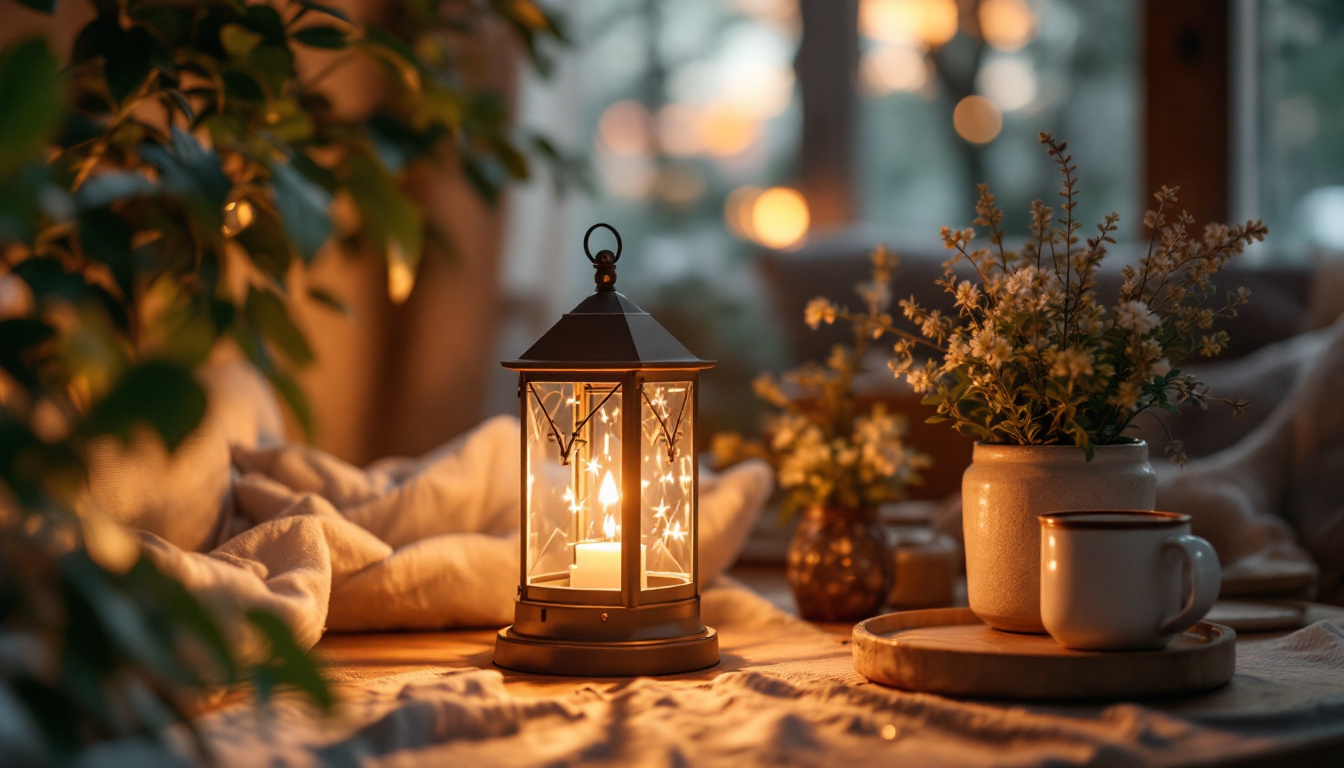
As the demand for energy-efficient and sustainable lighting solutions continues to grow, outdoor solar lights have become a popular choice among homeowners and businesses alike. For lighting contractors, understanding the nuances of solar lighting can enhance service offerings and improve client satisfaction. This article provides essential tips and insights into selecting and installing outdoor solar lights, ensuring that contractors can deliver the best results for their clients.
Before diving into the specifics of outdoor solar lights, it’s crucial to grasp the underlying technology. Solar lights harness sunlight during the day, converting it into energy stored in batteries for use at night. This process not only reduces electricity costs but also minimizes environmental impact.
Solar lights typically consist of several key components: solar panels, batteries, LED bulbs, and sensors. The solar panel captures sunlight, while the battery stores energy for nighttime use. LED bulbs are favored for their efficiency and longevity, and sensors help automate the lighting based on ambient light levels.
Understanding these components allows contractors to make informed recommendations to clients, ensuring they choose products that meet their specific needs. For instance, a client with a shaded garden may require solar lights with larger panels or more efficient batteries to compensate for reduced sunlight exposure.
There are various types of outdoor solar lights available, each designed for different applications. Pathway lights, flood lights, spotlights, and decorative lights serve distinct purposes, and selecting the right type is essential for achieving the desired aesthetic and functionality.
Pathway lights are ideal for illuminating walkways and driveways, enhancing safety while adding visual appeal. Flood lights can provide broader coverage for larger areas, while spotlights are perfect for highlighting specific features, such as trees or architectural elements. Decorative lights, on the other hand, can add charm and character to outdoor spaces.
When selecting outdoor solar lights, several factors should be taken into account to ensure optimal performance and satisfaction. These considerations can significantly impact the effectiveness and longevity of the lighting solution.
The brightness of solar lights is measured in lumens, which indicates how much light the fixture emits. For general outdoor use, lights with a lumen output of 100 to 200 are typically sufficient. However, for areas requiring more illumination, such as security lighting or large yards, higher lumen ratings are advisable.
Contractors should educate clients about the importance of lumens in relation to their specific needs. A well-lit outdoor space not only enhances safety but also creates an inviting atmosphere.
Battery life and charging time are critical factors that influence the performance of solar lights. Most solar lights use rechargeable batteries, which can vary in quality and capacity. High-quality batteries will charge faster and provide longer-lasting illumination.
Contractors should recommend solar lights with batteries that have a good reputation for longevity, as this will reduce maintenance and replacement costs for clients. Additionally, understanding charging times based on sunlight exposure can help contractors set realistic expectations for clients regarding performance.
Proper installation is crucial for maximizing the effectiveness of outdoor solar lights. Lighting contractors must pay attention to various factors during the installation process to ensure that the lights function as intended.
The location and placement of solar lights can significantly impact their performance. Ideally, solar lights should be installed in areas that receive direct sunlight for most of the day. This ensures that the solar panels can charge effectively, providing adequate illumination at night.
Contractors should assess the landscape and identify optimal spots for installation. For instance, placing lights near trees or structures that cast shadows can hinder performance, so it’s essential to choose locations that maximize sunlight exposure.
The height and angle at which solar lights are installed can also affect their efficiency. Generally, lights should be mounted at a height that allows for optimal light distribution without being obstructed by foliage or other structures.
Adjusting the angle of the solar panel can enhance charging efficiency. If possible, contractors should install panels facing south to capture the most sunlight throughout the day. This simple adjustment can lead to significant improvements in performance.
While solar lights require less maintenance than traditional lighting solutions, some care is still necessary to ensure they function optimally over time. Educating clients about maintenance can enhance their satisfaction and prolong the lifespan of the lights.
Dust, dirt, and debris can accumulate on solar panels, reducing their efficiency. Regular cleaning is essential to maintain optimal performance. Contractors should advise clients to clean the panels periodically, especially after storms or windy conditions that may leave debris on the surface.
Using a soft cloth and mild soap can effectively remove grime without damaging the panels. Clients should be reminded to avoid harsh chemicals that could harm the solar components.
Over time, batteries may lose their ability to hold a charge. Contractors should inform clients about the signs of battery degradation, such as dim lighting or shorter illumination periods. Replacing batteries as needed can significantly extend the lifespan of solar lights and maintain their performance.
Despite their many advantages, outdoor solar lights can present challenges that contractors must be prepared to address. Understanding these common issues and their solutions can enhance service quality and client satisfaction.
One of the most common complaints about solar lights is insufficient illumination. This issue can arise from several factors, including poor battery performance, inadequate sunlight exposure, or low-quality fixtures. To tackle this problem, contractors should ensure that clients select products with appropriate lumen output and battery capacity for their specific needs.
Additionally, if a client’s outdoor space is shaded, recommending lights with larger solar panels or higher-quality batteries can help mitigate this issue. Educating clients about the importance of placement and sunlight exposure is also crucial.
Clients may experience frustration if their solar lights fail prematurely. This can often be attributed to low-quality materials or improper installation. Contractors should prioritize recommending reputable brands and ensuring proper installation techniques to minimize the risk of early failure.
Furthermore, advising clients on regular maintenance can significantly enhance the longevity of their solar lights. By setting realistic expectations and providing guidance, contractors can foster trust and satisfaction.
In addition to functionality, outdoor solar lights can enhance the aesthetic appeal of outdoor spaces. Contractors should consider the design and style of solar lights to ensure they complement the overall landscape.
Solar lights come in various styles, from modern and sleek to traditional and ornate. When recommending fixtures, contractors should take into account the architectural style of the home and the surrounding landscape. This attention to detail can elevate the overall look of the outdoor space.
For instance, contemporary homes may benefit from minimalist solar lights, while rustic properties might be better suited for lantern-style fixtures. By aligning the style of the lights with the client’s preferences and the property’s design, contractors can create a harmonious outdoor environment.
Beyond standard fixtures, there are numerous creative ways to incorporate solar lighting into outdoor spaces. For example, solar string lights can add a whimsical touch to patios or gardens, while solar spotlights can highlight landscaping features or architectural elements.
Encouraging clients to think outside the box can lead to unique and personalized lighting solutions that enhance their outdoor experience. By showcasing creative options, contractors can provide added value and inspire clients to explore innovative designs.
The solar lighting industry is continually evolving, with new technologies and trends emerging regularly. Staying informed about these developments can help contractors remain competitive and offer cutting-edge solutions to clients.
One of the most exciting trends in solar lighting is the integration of smart technology. Smart solar lights can be controlled via mobile apps, allowing users to adjust brightness, set timers, and even change colors. This added functionality enhances convenience and customization for users.
Contractors should familiarize themselves with smart solar lighting options and consider recommending them to tech-savvy clients. As demand for smart home technology grows, offering these solutions can set contractors apart in a competitive market.
As technology advances, solar lights are becoming more efficient and sustainable. Innovations in solar panel technology, battery design, and LED efficiency are leading to longer-lasting and more reliable products. Contractors should keep an eye on these advancements and be prepared to recommend the latest and most efficient products to clients.
By staying informed about trends and innovations, contractors can position themselves as experts in solar lighting, ultimately benefiting their business and their clients.
Outdoor solar lights offer a myriad of benefits, from energy savings to aesthetic enhancement. For lighting contractors, understanding the technology, selecting the right products, and ensuring proper installation and maintenance are crucial for delivering exceptional service. By following these quick tips, contractors can enhance their expertise and provide clients with effective, beautiful, and sustainable lighting solutions.
As the industry continues to evolve, staying informed about trends and innovations will further empower contractors to meet the growing demand for outdoor solar lighting. Embracing this knowledge will not only improve client satisfaction but also contribute to a more sustainable future.
Ready to elevate your lighting projects with the best in outdoor solar lights? At LumenWholesale, we provide lighting contractors with exceptional, spec-grade lighting products at wholesale prices that simply can’t be beaten. Our commitment to quality and affordability ensures that you can offer your clients reliable, high-performance lighting solutions that align with the latest industry standards. Say goodbye to inflated markups and hello to hassle-free bulk buying with free shipping. Don’t compromise on quality or value—choose LumenWholesale for your lighting needs and experience the ultimate in contractor convenience. Wholesale Lighting at the Best Value is just a click away.

Discover how lighting contractors can enhance their projects by integrating light switches with outlets.

Discover how indoor spotlight fixtures can help lighting contractors win more bids by enhancing design appeal and energy efficiency.

Illuminate your property with confidence using expert insights from lighting contractors.

Discover how indoor gas lanterns can transform your living space with their timeless charm and warm glow.